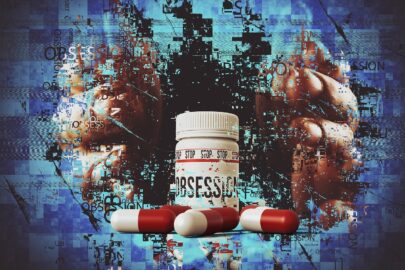Understanding the intricate web that is addiction is essential to learning how to break free from its hold.
It’s a complex illness that involves the inability to quit using a drug or engaging in a particularly harmful habit. Numerous negative psychological, physiological, and individual consequences may result from it.
Ø What are the Stages in Addiction?
Addiction takes time to develop. In fact, using drugs or alcohol can occasionally take months or even years to develop into an addiction. There will be multiple phases that the body experiences when it begins to rely on that chemical throughout that time frame.
There are five main stages:
a) Experimentation (Trying It for the First Time)
b) Regular Use
c) Risky Use
d) Dependence
e) Addiction
Ø Cycle of addiction-
These stages may occasionally happen at the same time. After just one or two usage, some of these illegal substances can also cause tolerance. All of these actions, however, are typically a part of the long-term cycle of addiction.
Nonetheless, there are phases of substance use or abuse that contribute to the conditions that result in an individual becoming addicted for the great majority of persons who battle addiction.
a)Emotional Trigger
An emotionally charged mood, idea, or memory—often derived from trauma or pain in the past—sets off the addiction cycle. Conscious and unconscious triggers for emotions are both possible. The temptation to ignore or repress those uncomfortable feelings or ideas before or when they occur is what keeps the cycle of addiction going.
b)Craving
An addict enters a defensive state when they are emotionally provoked. By avoiding it, they want to protect themselves from anything unpleasant. Their body and mind have come to believe that the best way to block unpleasant thoughts or emotions is to use drugs or alcohol.
It can get to the point where abusing drugs or alcohol takes precedence over everything else in their lives, including life itself.
c)Ritual
As part of their addiction, addicts frequently follow a certain routine in response to cravings. These customs typically revolve around the process of obtaining and consuming alcohol or drugs. An alcoholic, for instance, could regularly visit the same liquor store to restock on booze for a week prior to going on a binge, but a heroin addict might adhere to a particular regimen before shooting up.
d)Regular use
The addict utilizes drugs or alcohol to suppress, turn off, or ignore what’s triggering them after they’ve completed their ritual.
e)Guilt
Depending on the person, some experience guilt right away after using or drinking. Many people experience guilt about using drugs or alcohol shortly after, and this guilt can act as an emotional trigger, leading the person to use drugs or alcohol more and thus extending the addiction cycle.
Ø Consequences of addiction-
Health issues
Disruption of family
Financial burden
Depression and anxiety
Reduction in quality of work
Attention and concentration impairment
Involving in high risk activities- road traffic accidents, drug dealing ect.
Understanding the addiction cycle is essential for overcoming addiction as it unveils patterns, triggers, and the core mechanisms fueling substance dependency. This knowledge empowers individuals to identify triggers, allowing them to anticipate and manage situations that may lead to substance use. A deeper understanding also enables tailored treatment approaches, addressing the unique needs of each person. Moreover, comprehension of the complexities of addiction fosters empathy among family, friends, and healthcare providers, creating a supportive environment for recovery.
Knowledge of the addiction cycle is instrumental in preventing relapses by facilitating the development of effective coping mechanisms. It also helps address underlying emotional, psychological, or environmental factors, contributing to a more comprehensive and sustainable recovery. Recognizing early signs of relapse or struggles within the cycle encourages timely intervention, preventing a full-blown return to addictive behaviors. Essentially, understanding the addiction cycle serves as a guiding roadmap for individuals and their support networks, enhancing the chances of breaking free from the grip of addiction.


Comments